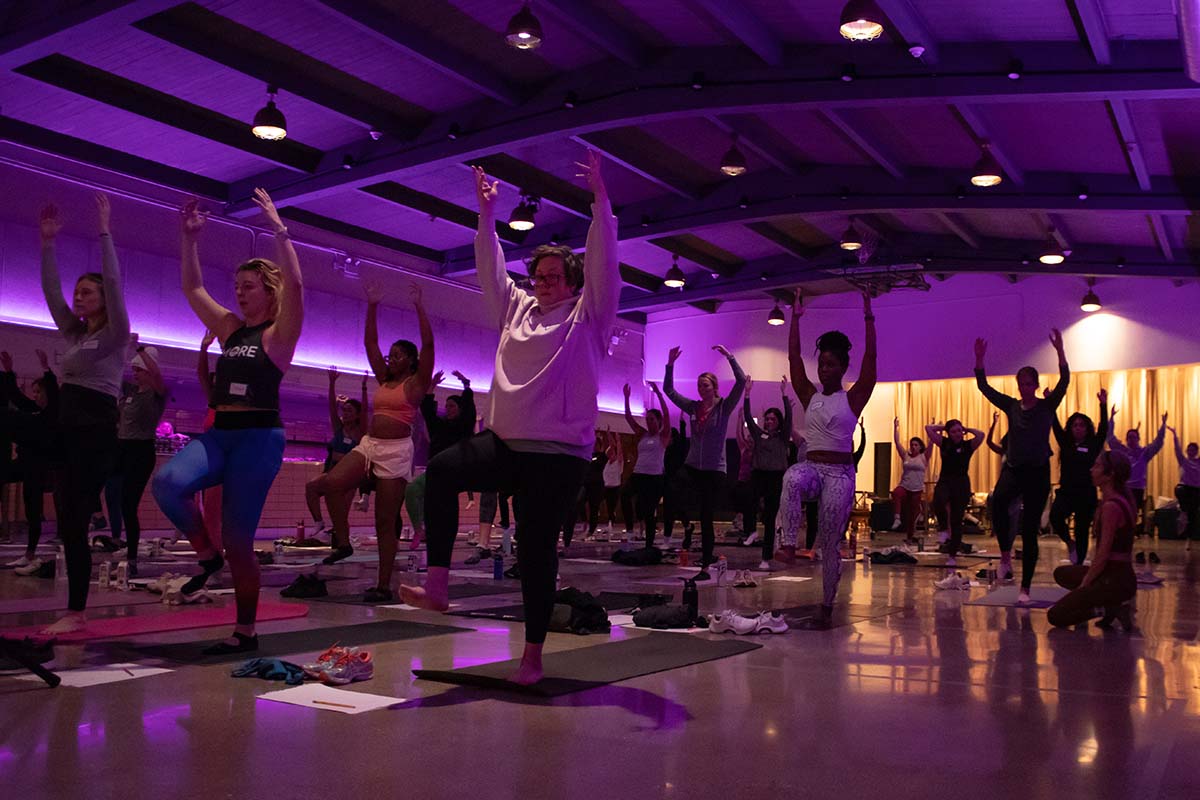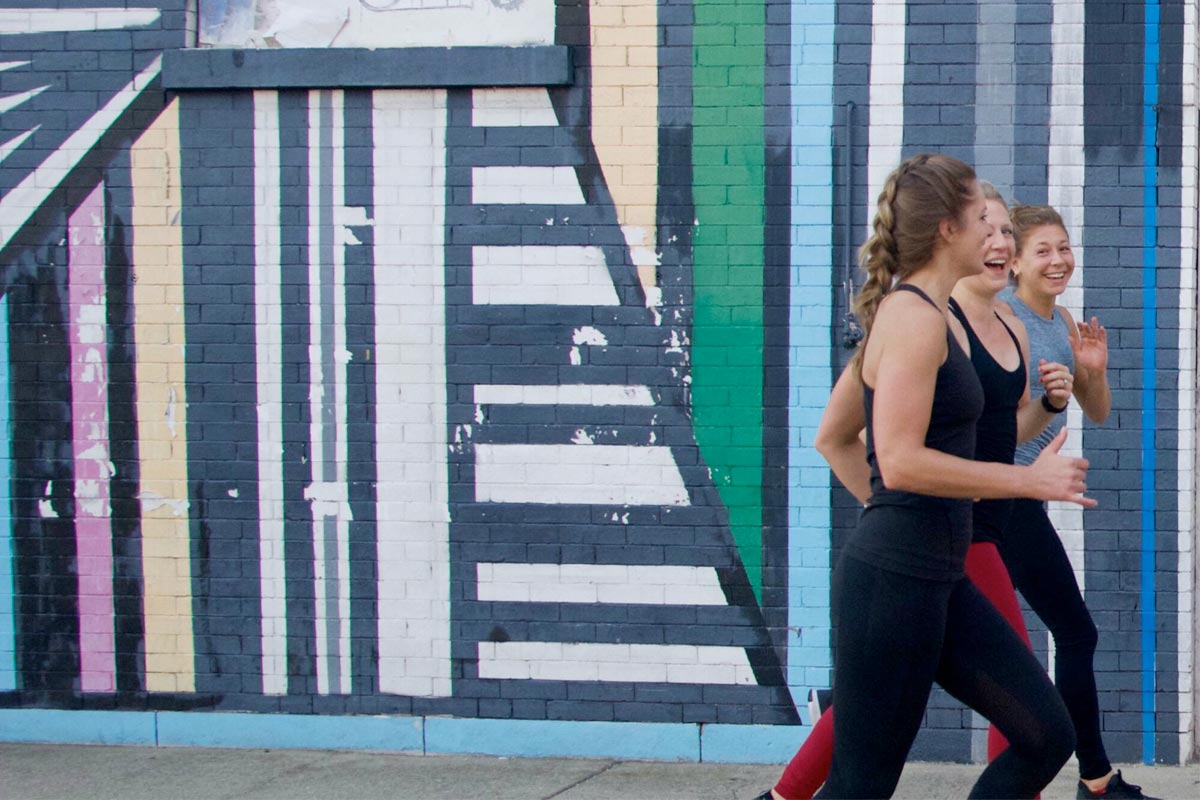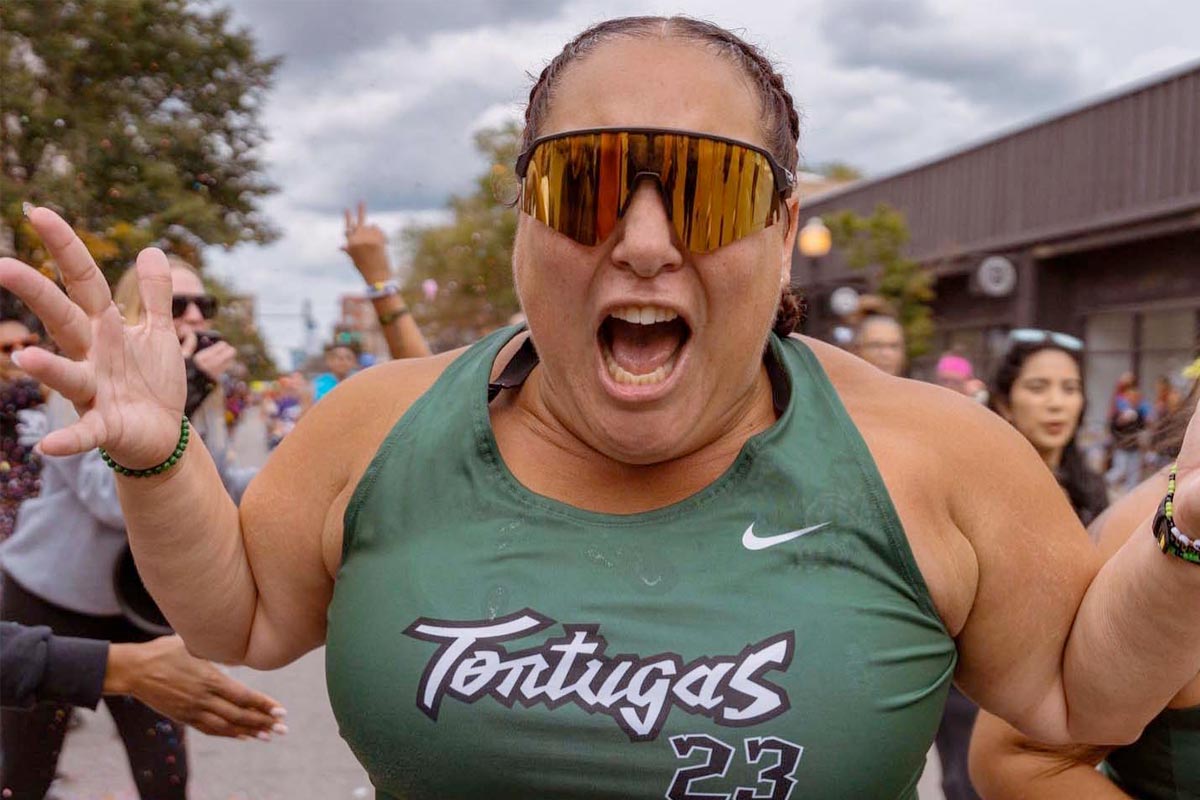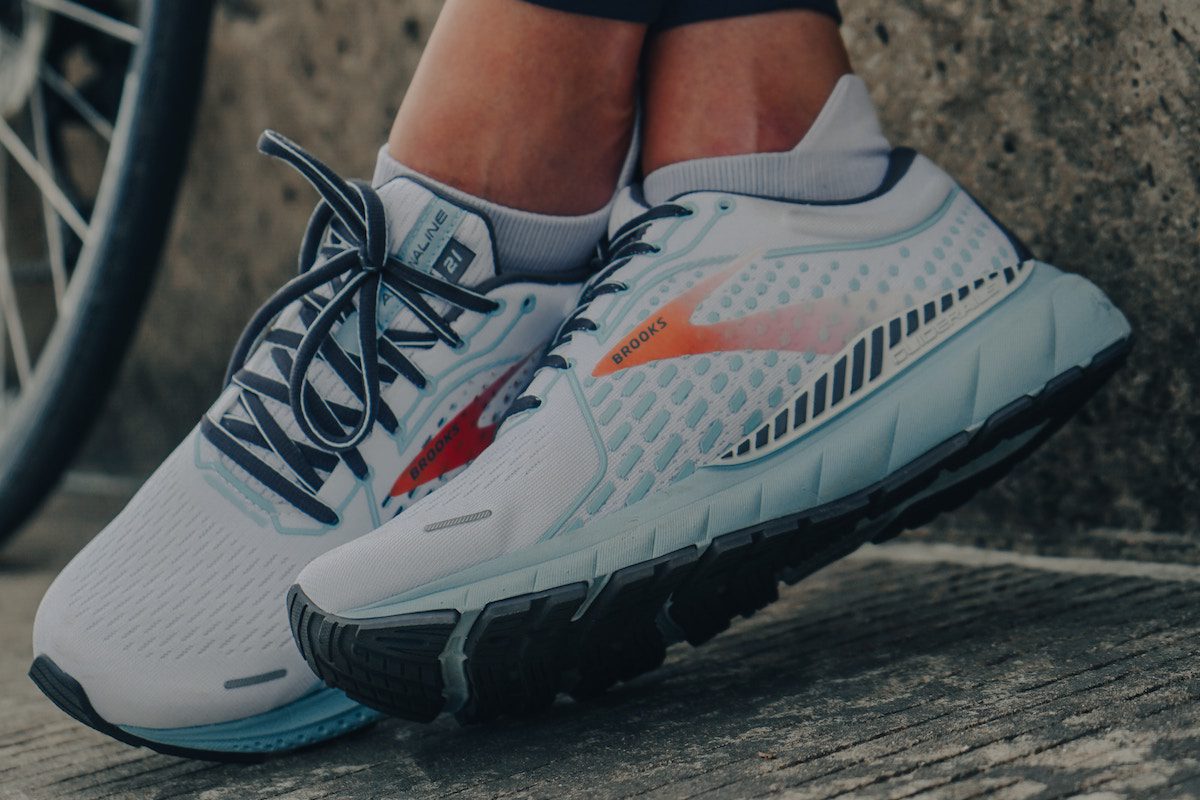Athlete Profile: Ultrarunner Greg Salvesen
People often ask me why I went to the University of Michigan, given that I grew up just north of Boston. I usually give some wishy-washy answer like “exciting football team,” “I wanted a big school” or “I heard that Harvard was the Michigan of the East so I had to go find out for myself.” The truth is, my mom was talking to her best friend’s neighbor (also my health teacher), whose oldest son, Greg Salvesen, had just started at Michigan. Greg’s excitement about Michigan fueled his mom’s excitement, which fueled my mom’s excitement and, long story short, now I’m a diehard Wolverine.
Flash-forward almost a decade, and I noticed Greg kept popping up in my newsfeed with updates from races at distances that I couldn’t quite fathom, including a whole bunch of 100-milers and some even longer multi-day races. I’m from a pretty small town, so I had a pretty good idea of who the cross-country kids were because they always seemed to be out running when you’d be driving around town. Greg was not on that list. So how did he progress into the winner of the 200-mile Peak Ultra Endurance Run trail race? I had to call him and find out, and after chatting I was quickly reminded of what a passionate and enthusiastic person he is. He taught me so much about distance running that I’ve started to talk about it like I’ve actually run farther than a 10K (I have not) and he shared some amazing advice that I think any fitness enthusiast can relate to about passion, prioritization and community.
Hi! Long time no chat! Thanks for taking some time to catch up with me!
It’s great to hear from you!
So, I am I right that you weren’t a huge runner back when I knew you in high school and college? How did you get into distance running?
I didn’t really run at all when I was younger. A friend roped me into a half marathon in college, which led to a few more races. When I moved to Boulder, everyone was very outdoorsy – skiing, climbing, and running – and I started running. I met people to run with and they invited me to do some big runs through the mountains. I ran maybe one or two marathons, and an ultra runner I knew invited me on some of the runs she was doing with her friends. Once you’ve done a marathon it’s not too intimidating to go 4 more miles to run 30 miles.
You’re going really slow and it’s very fun and very different than a marathon. During a marathon, you’re pushing hard and it sucks the whole time, but running 30 miles in the mountains, walking a good portion of that, and chatting with people and enjoying the mountains is more of a social thing and a nice way to spend the day. It’s really not as a hard as it sounds – it’s hard to convey that.
It’s hard to wrap my head around it not being that hard. But it sounds like there is a very different mindset from running a marathon to ultra running.
Definitely. When you run a marathon, the first question people ask is, “What was your time?” When you run 100 miles, everyone asks, “Why? What are you doing!?” And I’m not a really good runner – I’m not fast – so I felt better suited to longer distance stuff because other things play into it. Taking care of your feet or eating, and different sort of strategies that have nothing to do with running, become really important.
How is the training for an ultra race different than training for a marathon?
As far as I know there is no right way to do it. If you want to run a marathon there is a formulaic way to do that. If you want to run 100 miles or a six-day race you have to figure it out, experiment and problem solve on-the-fly. You learn a lot about yourself, what works for you, and what you’re able to do and not able to do. That’s how the training aspect goes.
I saw that in 2014 you ran a 100-mile race every month. How did that goal form?
I had run a handful of 100s and was getting better at them, which was nice. In January 2014, I finally ran the Hurt 100-mile Endurance Run), which I had wanted to do for a long time. The next morning, I got a call from my training partner who told me she had very advanced pancreatic cancer. She had just run her first 100 in September. Her cancer developed really fast and she died two months later.
Running was a way to deal with that. You have a lot of time to yourself during these races, which take 24 hours or longer, and travel a lot, so it was a nice way to start dealing with that. By that point, I thought, I may as well try to do one every month as something to do. Once you say to people that you’re doing it, you’re committed to it.
“If there is something you want to do, start telling people you’re going to do it.”
What is the ultra running community like?
Most people do it for the community. It’s a really tight knit group. You help each other get through really tough points in the race and are very vulnerable. Yeah, it’s a race, but you just want to see everyone succeed because you’re all pushing through together.
I think that’s incredibly relatable. I love my gym friends because they push me through my workouts, and are willing to talk about it with me after. Whether it’s group fitness, CrossFit, or ultrarunning, community is such a huge part of fitness in my mind.
I would emphasize that, for just about everyone who does this, it’s mostly about the community aspect. Most people go into 100-mile races or longer totally under-trained. You look and think, “Really? You’re going to give this a try?” These aren’t people who look like runners. They’re usually much older. They have joint pains and problems, and they’re not consistently exercising. They don’t go to the gym. They don’t actually even run very much week to week. They’re there more for the social part of it and to just try something.
“What’s the worst that will happen? You quit, have a pity party, get over it and try again.”
There’s very little ego in this sport. I don’t know what the CrossFit community or triathlon communities are like, but my impression is that they are more ego-oriented. They’re also very consistent, working hard day-in and day-out. It’s not like that in ultrarunning.
Are some people more competitive?
There is a group of elite ultramarathon runners who make it kind of a lifestyle or make a living out of it – which is almost impossible to do. My girlfriend (Cassie Scallon) is an elite ultrarunner. She just ran the 100 kilometers National Championship earlier this year and gets invited to go running worldwide. And she has a dozen sponsors and will win just about every race she enters. For her, it’s very different than me. It can be high stress at times and there are expectations placed on her. But for me, I’m your average person doing this and it’s just fun.
Between training and traveling for races, and the length of the races themselves, how do you find the time for it?
I just make it a priority, I guess. I say, “Look this is what I’m going to do.” I feel pretty strongly about this actually. This notion of working your ass off week-in, week-out and you get two weeks vacation per year is just hammered into people, and I don’t think you have to do that. People may feel you have to do that, but I don’t think you do. If I was in that situation where you get two weeks vacation – I would say OK, could I take an additional two weeks unpaid or make some other arrangement? I think time to do something you want to do is pretty important and I just do it.
I’m in grad school, so ultimately my schedule is flexible. For real people, it’s probably hard.
“But some things that you think aren’t possible – especially time commitments – just rearrange your priorities and don’t feel bad about it.”
There is a real societal belief that you’re supposed to feel bad if you’re not working 40 hours a week. But if you love something, I don’t care if it’s juggling, go juggle 10 hours a week. It’s your time.
Well the race that I found the most impressive was the Infinitus 888K. Can you tell me about that?
The Infinitus race was the biggest race I have done. There was a rich history of multi-day races that I was super interested in. The Infinitus was a one-of-a-kind race, where you’re in the middle of nowhere and it’s a multi-day event. You’re in the mountains for ten days straight and the clock is always running.
My parents rented an RV for ten days and my dad was there entire ten days cooking for me. My mom took off a whole week and my aunt came out from Texas – I had a stellar crew. They had fun meeting the other people helping out. Everyone has a good time, but I was working hard.
I ran the first 500 miles almost completely alone, maybe 20 miles with someone. I was out there, cut off from the world for seven days by myself. I saw my parents every 4 hours but that was it. Then it looked like I was going to finish within the time cap, so I had people who I didn’t even know who showed up and were interested in running with me for the rest of it. It was really weird. Out of the blue, here come these strangers I’ve never met who are interested in helping out. I had never cut myself off for a week before that and done something just for me and it was a really good experience.
That sounds like a pretty unforgettable experience. What would you say to people who are interested in ultrarunning?
Ultrarunning specifically – and I don’t know how to change this – comes across as really intimidating. Maybe it’s because of the word “ultra.” But if you showed up at one of these races, everyone is nothing but supportive. Genuinely, people want everyone else to succeed. They will sacrifice part of their race to help you succeed. If you feel like crap and need to walk ten miles, someone will slow down and walk with you for ten miles so you don’t quit, at the expense of their goals. I think it’s an awesome community and I wish that it wasn’t intimidating for people to try because when you’re in it, it’s anything but intimidating.
To learn more about Greg, follow along on his running blog, GregSalvesen.com or his University of Colorado site, where he posts the schedule of his upcoming races.















